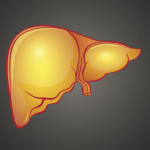Treatment with a statin drug lowers a type of inflammatory protein tied to cardiovascular disease (CVD) in people with HIV, according to a small study reported in the May 15 issue of the journal AIDS.
Inflammation in the blood vessels and elsewhere in the body has been tied directly to the development and worsening of CVD, both in people with HIV and those not living with the virus. Rates of CVD, however, are much higher in people with HIV and are rising over time as HIV-positive people reach their 50s and 60s.
Statin drugs are approved to treat high levels of low-density lipoprotein (LDL) cholesterol—and they do this quite well even in people with HIV—but one drug, Crestor (rosuvastatin), is also approved in HIV-negative people to lower a marker of inflammation tied to CVD—called high-sensitivity C-reactive protein (hsCRP). In a large study, treatment with Crestor lowered hsCRP levels, and that, in turn, lowered the risk of heart attacks and deaths.
To determine whether a statin—either Crestor or Pravachol (pravastatin)—could similarly reduce hsCRP levels in people with HIV, Elisabeth Aslangul, MD, from the Université Paris Descarte, and her colleagues analyzed blood samples of 58 people taking either 10 milligrams (mg) per day of Crestor or 40 mg of Pravachol as part of a larger study on the use of statins to lower LDL cholesterol.
Most of the study participants were white males, and the average age was 49. Ninety percent of the participants also had HIV levels under 400 copies, and overall the average CD4 count was 490. Aslangul and her colleagues measured hsCRP just before people began taking the statins and then again 45 days later.
The team found that both drugs reduced hsCRP levels by about 20 percent. Although Pravachol reduced LDL cholesterol by about half as much as Crestor, it actually beat Crestor in terms of hsCRP reductions—22 percent compared with 16 percent. In the large study used to approve Crestor to reduce hsCRP levels in HIV-negative people, the JUPITER trial, a higher dose reduced hsCRP levels by 37 percent over a two-year period. This led the authors to comment that “the fall in [hsCRP] observed here in HIV-infected patients during short-term statin therapy could be accentuated during long-term treatment.”
The authors acknowledge that their trial was small and of short duration, and that it did not have a control arm including people who received a placebo. Nevertheless, they point out that this is the first study to show a reduction in heart disease–causing inflammation, specifically hsCRP, by statin therapy in people with HIV.
“Clinical trials are warranted to determine the potential benefit of long-term statin treatment on the risk of cardiovascular events and death in at-risk HIV-infected patients,” they conclude.
Advertisement
Advertisement
Advertisement






Comments
Comments